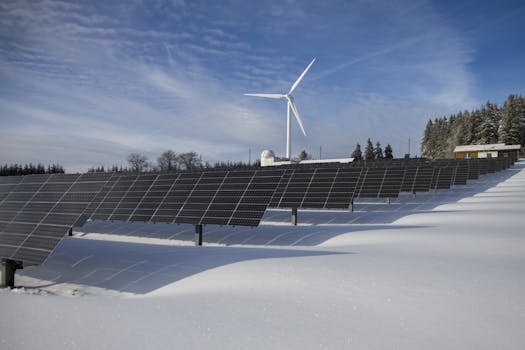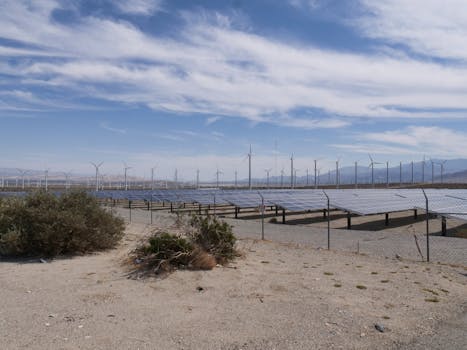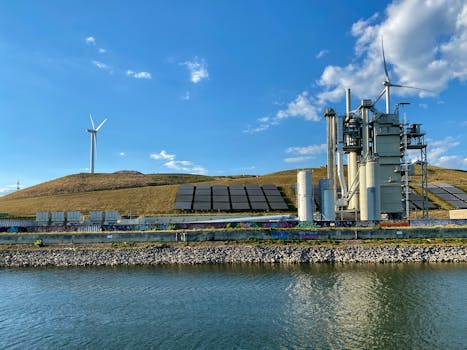
Introduction

The latest breakthroughs in renewable energy technologies have positioned the world on a path towards a sustainable future. As the effects of climate change become increasingly evident, the need for innovative solutions in energy production and consumption has never been more critical. This article explores the recent advancements in renewable energy technologies and their potential impact on the global energy landscape.
Solar Power Innovations

Solar power has long been at the forefront of renewable energy technologies, and recent innovations have only strengthened its position. One significant breakthrough is the development of bifacial solar panels, which can capture sunlight from both sides, increasing overall efficiency. Furthermore, perovskite solar cells are gaining attention due to their potential for higher efficiency and lower production costs compared to traditional silicon-based solar cells.
Additionally, advancements in solar energy storage solutions, such as lithium-sulfur batteries, promise to enhance the reliability of solar power by storing excess energy generated during peak sunlight hours for use during periods of low sunlight.
Wind Energy Developments

Wind energy technology has also seen remarkable advancements, particularly in turbine design. The introduction of larger and more efficient wind turbines, capable of harnessing wind at greater heights, has significantly increased energy output. Floating wind farms are another exciting development, allowing for installations in deeper waters where wind resources are stronger and more consistent.
Moreover, the integration of artificial intelligence and machine learning in wind energy systems is optimizing turbine performance and maintenance, resulting in increased efficiency and reduced operational costs.
Energy Storage Breakthroughs

Energy storage is crucial for the success of renewable energy technologies. Recent breakthroughs in this field include the development of solid-state batteries, which offer higher energy densities and improved safety compared to traditional lithium-ion batteries. Additionally, technologies like pumped hydro storage and advanced flywheel systems are being refined to provide large-scale energy storage solutions that can support grid stability.
These innovations are essential for managing the intermittent nature of renewable energy sources, ensuring a reliable supply of electricity even when production is low.
Hydrogen Fuel Advances

Hydrogen fuel is emerging as a promising clean energy carrier. Recent advancements in electrolysis technology have made it more feasible to produce green hydrogen using renewable energy sources. This hydrogen can be utilized in various applications, from powering vehicles to providing energy for industrial processes.
Furthermore, research is underway to improve hydrogen storage and transportation methods, making it a more viable option for large-scale energy systems.
Conclusion

The latest breakthroughs in renewable energy technologies are paving the way for a sustainable future. As we continue to innovate and improve upon existing solutions, the transition to a cleaner, more efficient energy landscape becomes increasingly attainable. Embracing these advancements will not only help combat climate change but will also create new economic opportunities and enhance energy security worldwide.





